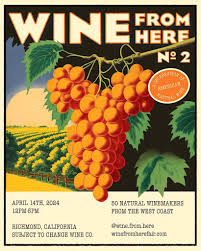The California Wine Company continues to be a prominent player in the state’s wine industry, adapting to changing market conditions and environmental challenges. As one of the leading wine producers in California, the company has been at the forefront of addressing the issues highlighted in recent industry reports.
Responding to Market Dynamics
In 2024, the California Wine Company has shown remarkable adaptability in the face of fluctuating market demands. With the industry facing challenges of overproduction, the company has implemented sophisticated inventory management systems to better align their output with market needs. Focusing on their most popular varietals, such as Chardonnay, Cabernet Sauvignon, and Sauvignon Blanc, they have managed to maintain a strong demand.
Recognizing the shifting preferences among younger demographics, the California Wine Company has diversified its product range. They have introduced lighter, fresher wine styles that appeal to millennials and Gen Z consumers, who are showing less interest in traditional wine offerings. Additionally, the company has ventured into producing premium non-alcoholic wines to cater to the growing “sober curious” movement.
Commitment to Sustainability
Sustainability remains a key focus for the California Wine Company in 2024. Building on the industry-wide trend, over 80% of their wines are now produced in sustainably certified wineries. The company has invested heavily in water conservation technologies and renewable energy sources, positioning itself as a leader in environmentally responsible winemaking practices.
Embracing Technological Innovations
The California Wine Company has also embraced technological innovations to improve its operations and marketing strategies. Implementing AI-driven predictive analytics has allowed them to better forecast demand and optimize their supply chain. This technology has helped them navigate the challenging market conditions, allowing for more precise production planning and reducing the risk of oversupply.
Optimistic Outlook Despite Challenges
Despite industry-wide concerns about declining wine consumption, the California Wine Company maintains a cautiously optimistic outlook for 2024. Their focus on quality, sustainability, and innovation has helped them weather the storm better than many of their competitors. The company’s wines from premium regions like Napa and Sonoma continue to command strong prices, particularly for their high-end Cabernet Sauvignon and Chardonnay offerings.
Vigilance and Adaptability
The California Wine Company remains vigilant about potential challenges. They are closely monitoring consumer trends, economic indicators, and climate conditions that could impact their business. The company’s leadership understands that adaptability will be key to their continued success in the evolving wine market.
Sourcing Quality Grapes
As the 2024 grape season gets underway, the California Wine Company is leveraging its strong relationships with growers across the state’s diverse wine regions. They are particularly focused on sourcing high-quality white grape varieties like Sauvignon Blanc and Chardonnay, which are seeing increased consumer demand.
Spotlight on Other Sustainable Wine Companies
The California Wine Company is part of a broader movement towards sustainability in the California wine industry. Here are some other notable wineries known for their sustainability efforts:
- Grgich Hills Estate: A 2024 winner of the Great Wine Capitals Sustainable Wine Tourism Practices award. They have transitioned to organic and biodynamic farming and achieved Regenerative Organic Certification.
- Clif Family Winery: Became a Certified B Corporation in 2022. They operate on 100% renewable electricity and have over 90 acres of certified organic vineyards.
- Joseph Phelps Vineyards: Known for sustainable farming practices, fostering biodiversity, and investing in solar panels.
- St. Supéry Estate Vineyards and Winery: A Napa Green Land and Winery that has reduced water usage by 50% and uses solar panels.
- Tres Sabores: A 2023 winner of the Great Wine Capitals Sustainable Wine Tourism Practices award, known for organic farming and innovative practices.
- Bennett Lane Winery: Implements a 360-degree approach to sustainable farming.
- Cakebread Cellars: Has been a Napa Green Certified Winery since 2008 and has all its vineyards certified in the Napa Green Land program.
- Benziger Family Winery: An early adopter of biodynamic farming techniques, certified by the Demeter Association.
- Bonterra Organic Estates: Practices biodynamic farming and has obtained Regenerative Organic Certified certification.
- HALL Family Wines: Their 12 Estate Vineyards are Certified Sustainable by the California Sustainable Winegrowing Alliance (CSWA).
Industry-Wide Commitment
See Also-Exploring the Best Water Parks in Southern California
It’s worth noting that over 60% of California’s vineyard acreage is certified sustainable, and over 80% of its wines are produced in sustainably certified wineries as of 2024. This indicates a widespread commitment to sustainability across the California wine industry.
Conclusion
In summary, while the wine industry faces significant challenges in 2024, the California Wine Company stands out as a resilient and forward-thinking producer. Their commitment to quality, sustainability, and innovation positions them well to navigate the complexities of the current market and continue producing exceptional California wines. The broader industry’s dedication to sustainable practices further underscores the importance of environmental responsibility in maintaining the region’s legacy as a premier wine-producing area.
